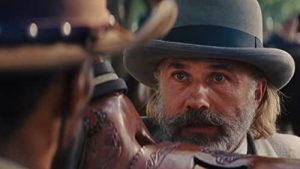PERHAPS only Quentin Tarantino could have turned Django Unchained into a triumph.
His 2012 film blends historical drama, spaghetti western and black comedy to create a searing indictment of America’s dark period of slave trading and abuse.
Other directors have created powerful dramas on the same subject, stylised westerns drawing on European influences or even a broad, but subversive comedy like Mel Brooks did with Blazing Saddles.
But nobody until Tarantino had even tried, let alone succeeded, in blending all three into not just a cohesive narrative but more importantly a responsible piece of social commentary.
Some, of course, do not agree. Not just film reviewers and academics working in this area, but also film-makers like Spike Lee who famously boycotted the film and spoke out against it.
There is no doubt that Tarantino is an at times incendiary, even problematic, film-maker in his uncompromising approach.
It’s no coincidence that his two most criticised films in this regard – Django Unchained and Inglorious Bastards – are based around shockingly sad and highly significant periods in history that reflect terribly on the human condition.
So, it’s not surprising that the buttons Tarantino pushes are going to shock and potentially upset some people, particularly when the quality of artistry and acting is also so high.
The film starts in Texas in 1868 when two men – German dentist-turned bounty hunter Dr King Schultz (Cristoph Waltz) and former slave Django Freeman (Jamie Foxx) form an alliance. The resourceful Freeman will help King in his bounty-hunting pursuits for a period of time in return for a share of the earnings and King’s help in funding Freeman’s wife Hildi (Kerry Washington) who is still a slave.
Over the next few months, the pair are successful and Freeman, under King’s guidance, becomes very proficient in the use of a gun.
Eventually it’s time for them to venture into the deep south to a major planation owned by the vicious Calvin J. Candie (Leonardo De Caprio) where they seek to gain Hildi’s freedom under the guise of being potential purchasers of enslaved black men who forcibly compete in so-called ‘Mandingo’ fist fights.
As you can tell from this plot synopsis, Tarantino does not shy away from showing the worst aspects of the slave trade and there is considerable violence and drama as a result.
The other aspect of film-making that Tarantino always gets right is casting and Foxx, Waltz and particularly De Caprio are brilliant in their leading roles.
Stand-out supporting performances also come from Washington and Samuel L. Jackson as Candie’s equally cruel confidante Stephen.
For all the criticisms levelled at the film, particularly claims of excessive violence and use of offensive racist language, few doubt Tarantino has the best of intentions and largely succeeds. Some people just don’t like the way he goes about it and his always strident defence of his methods and achievements.
